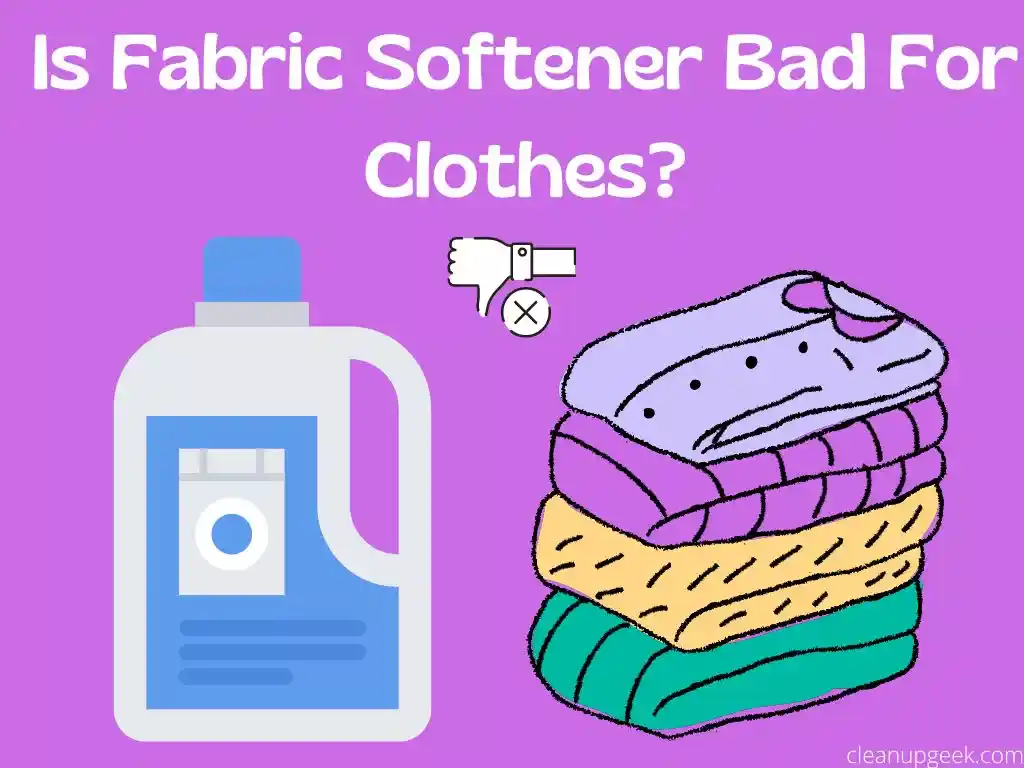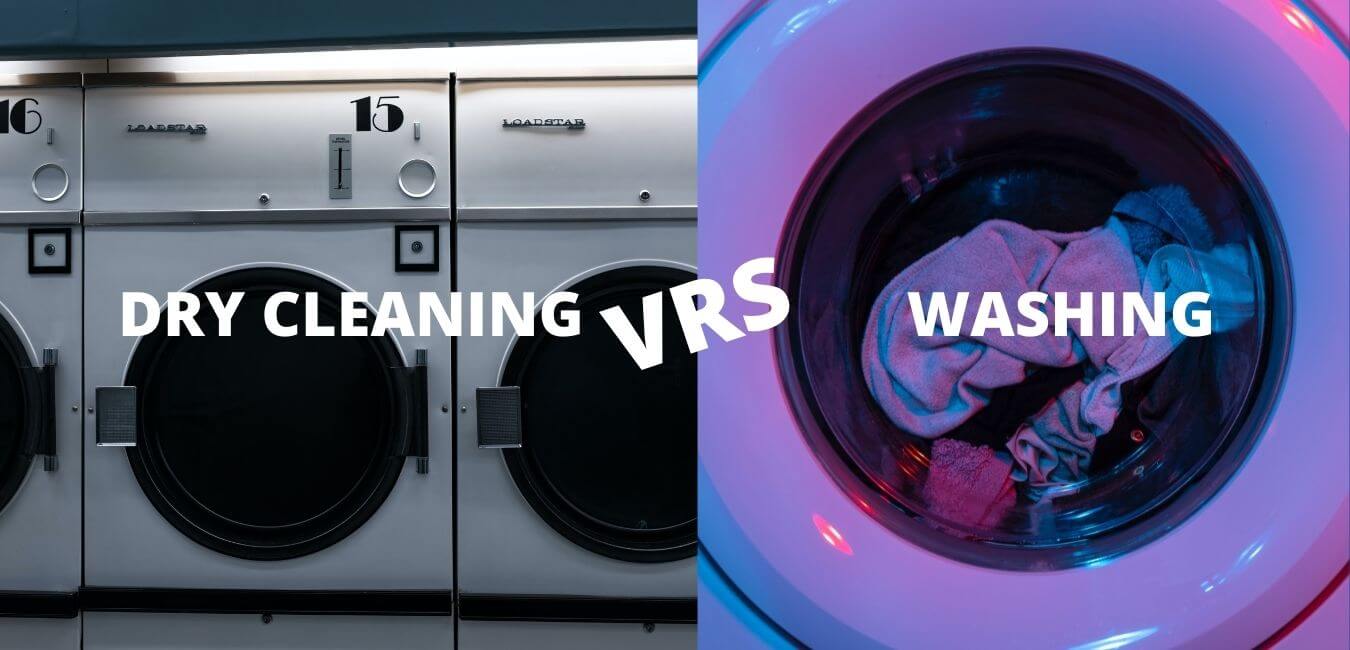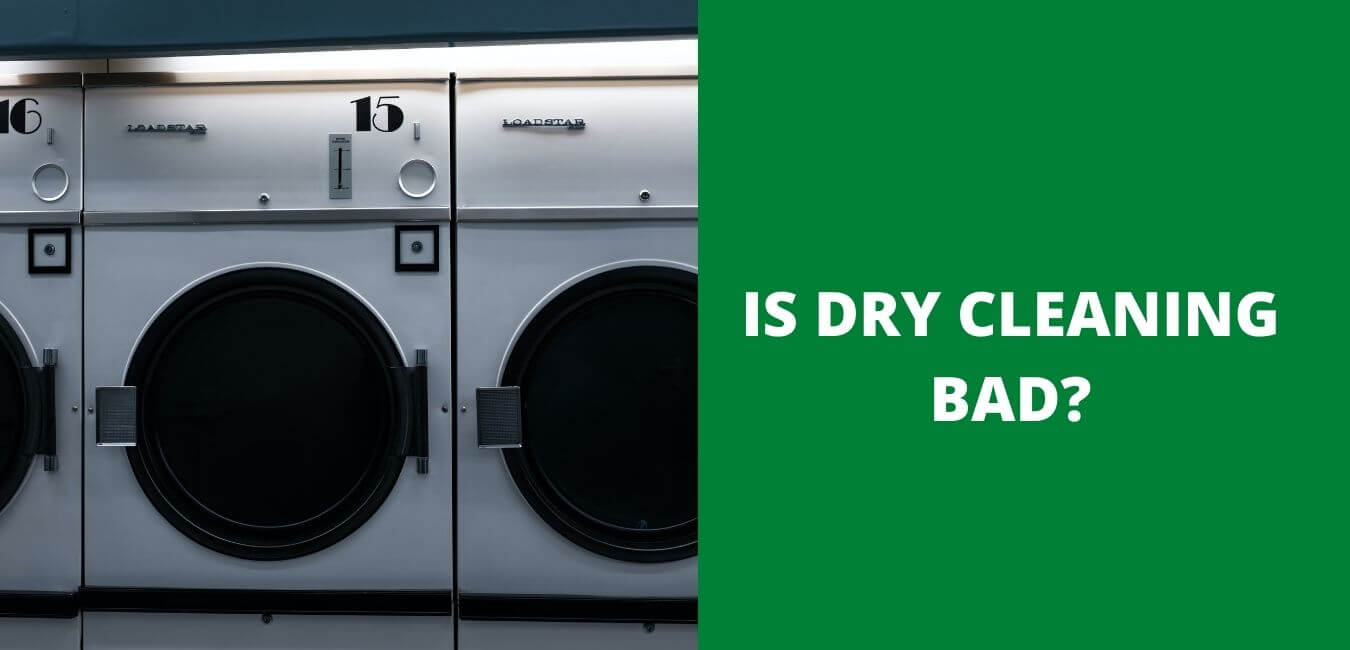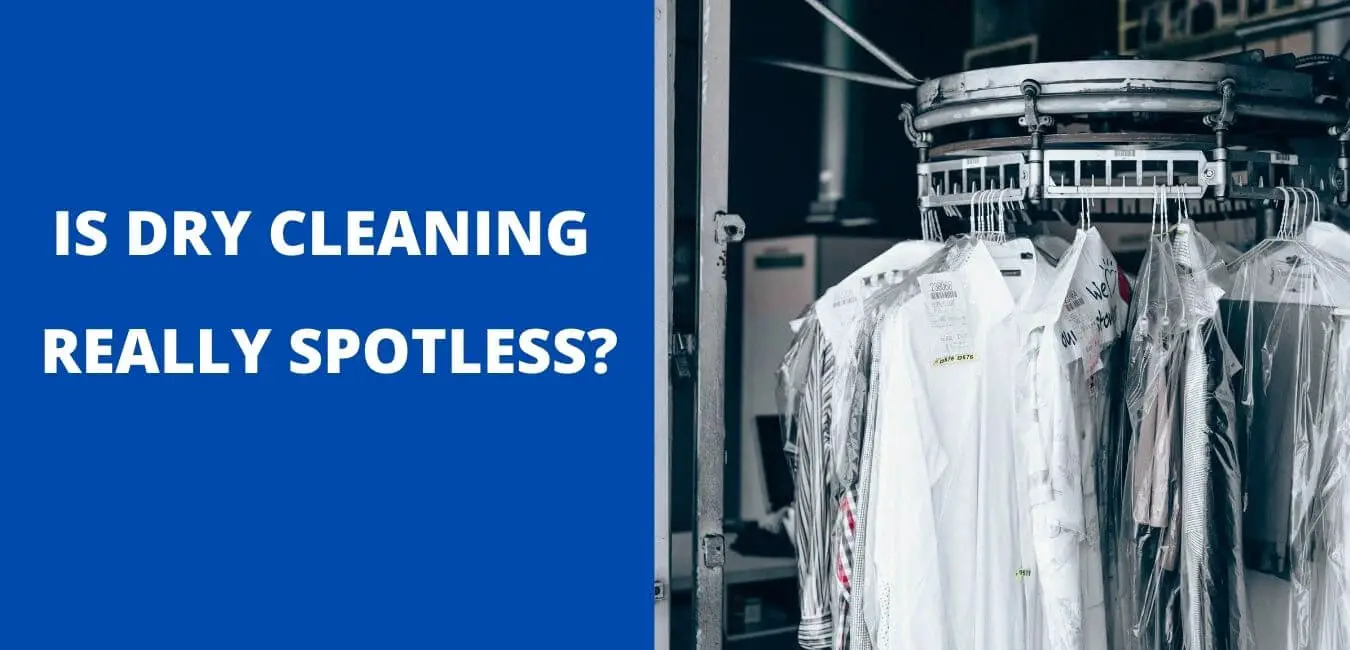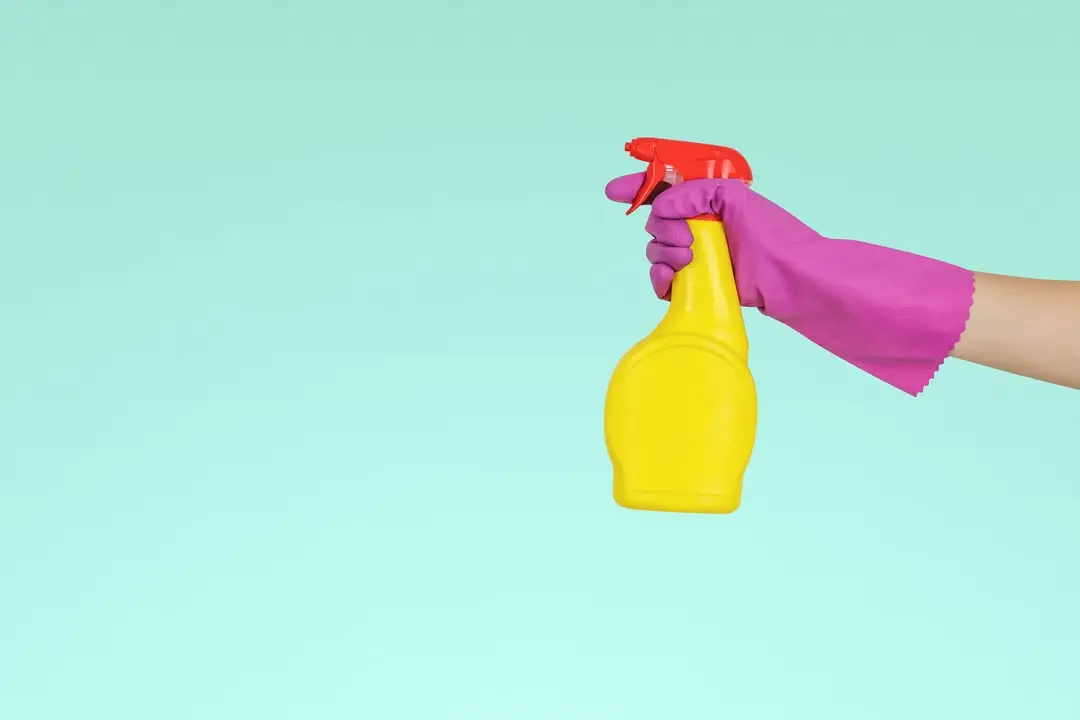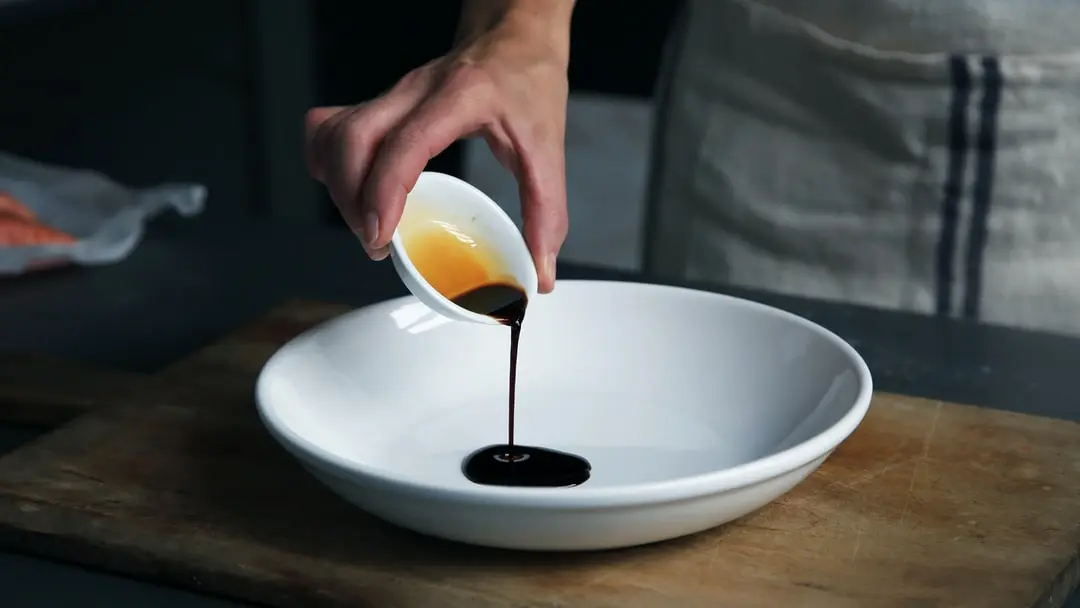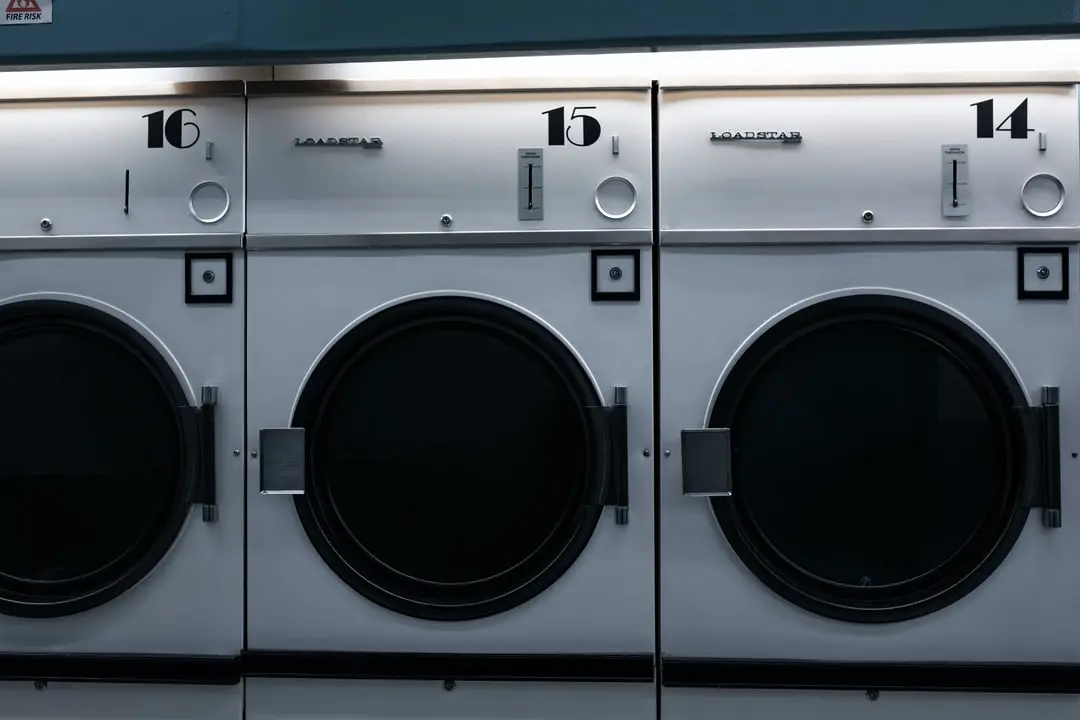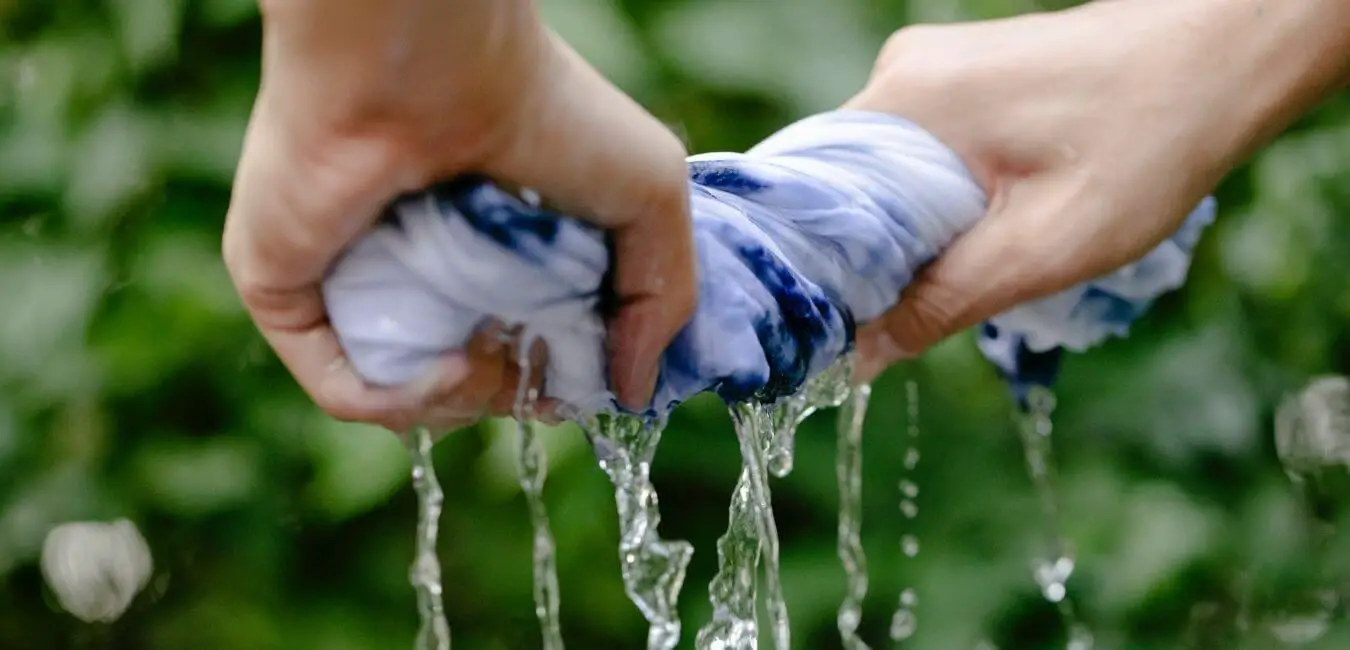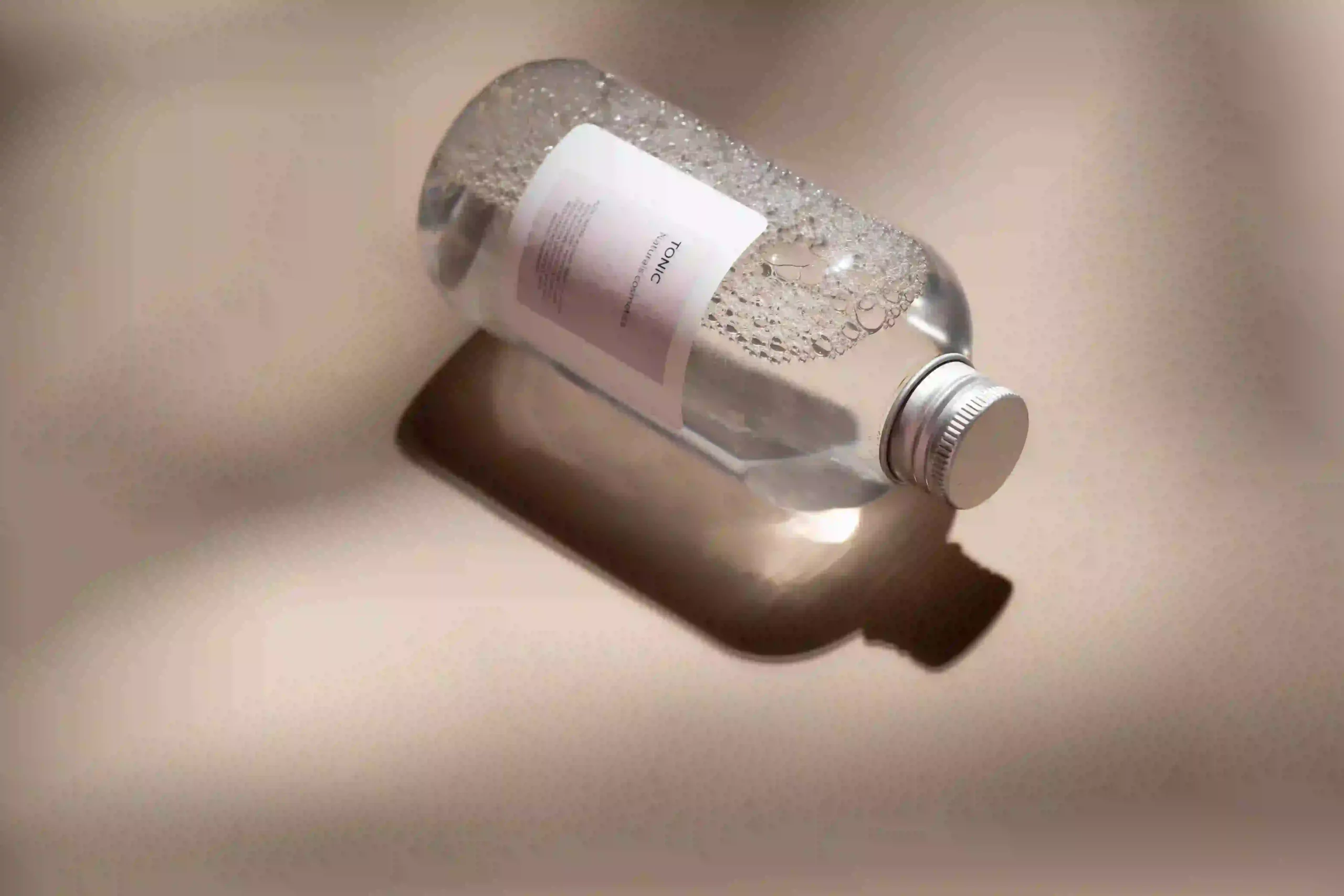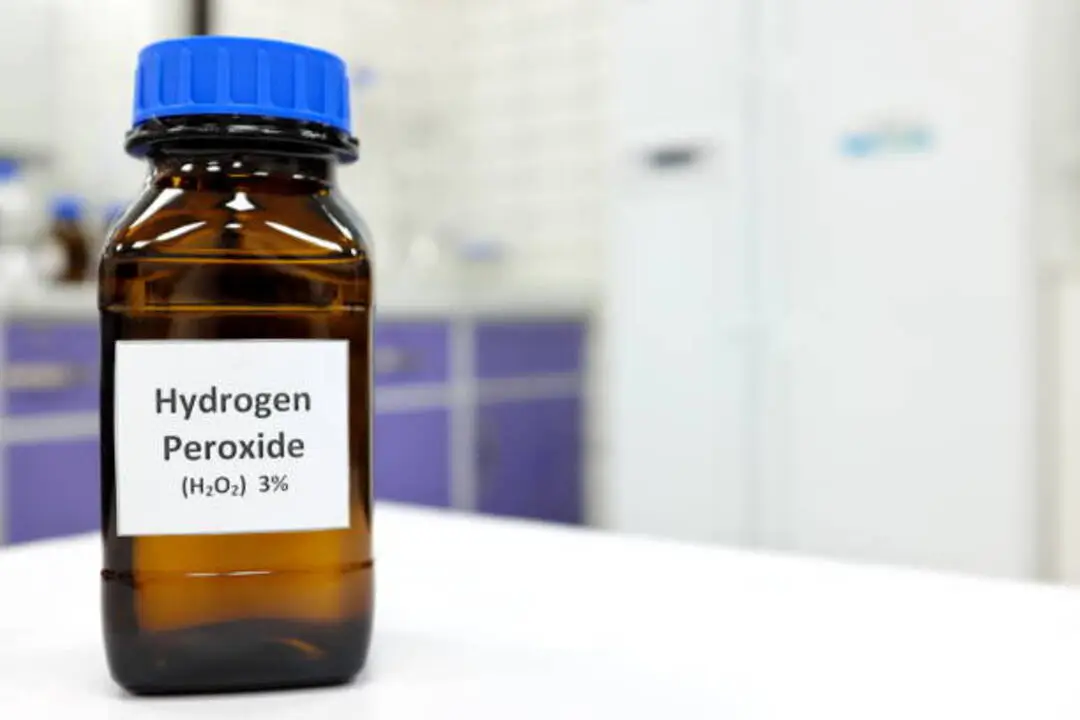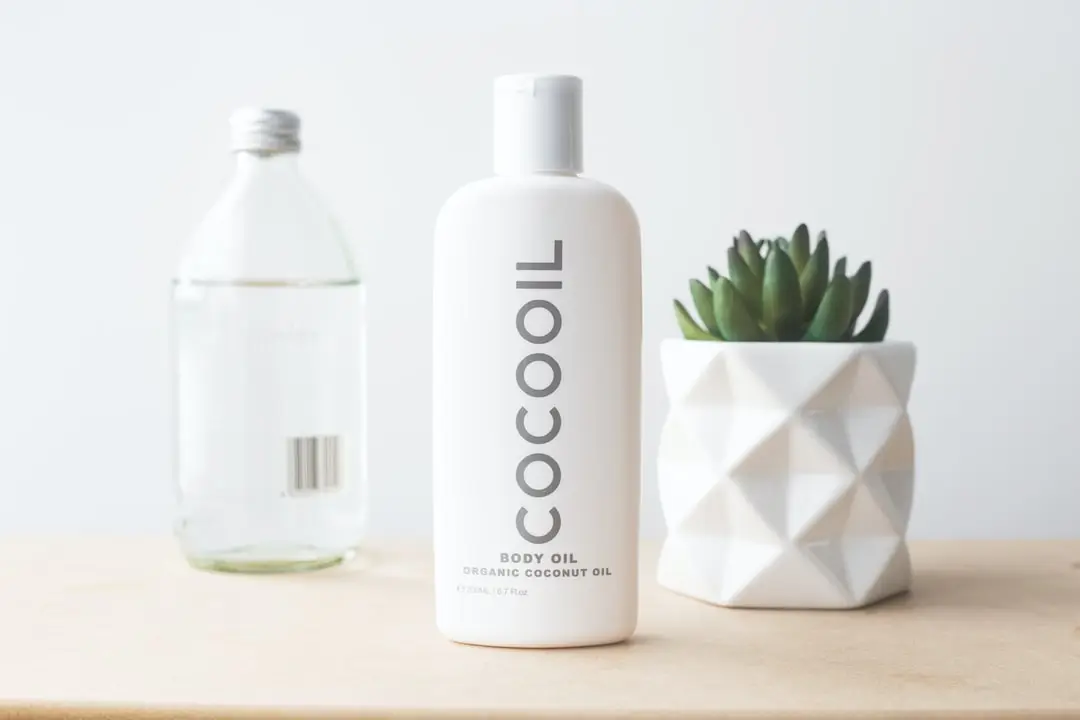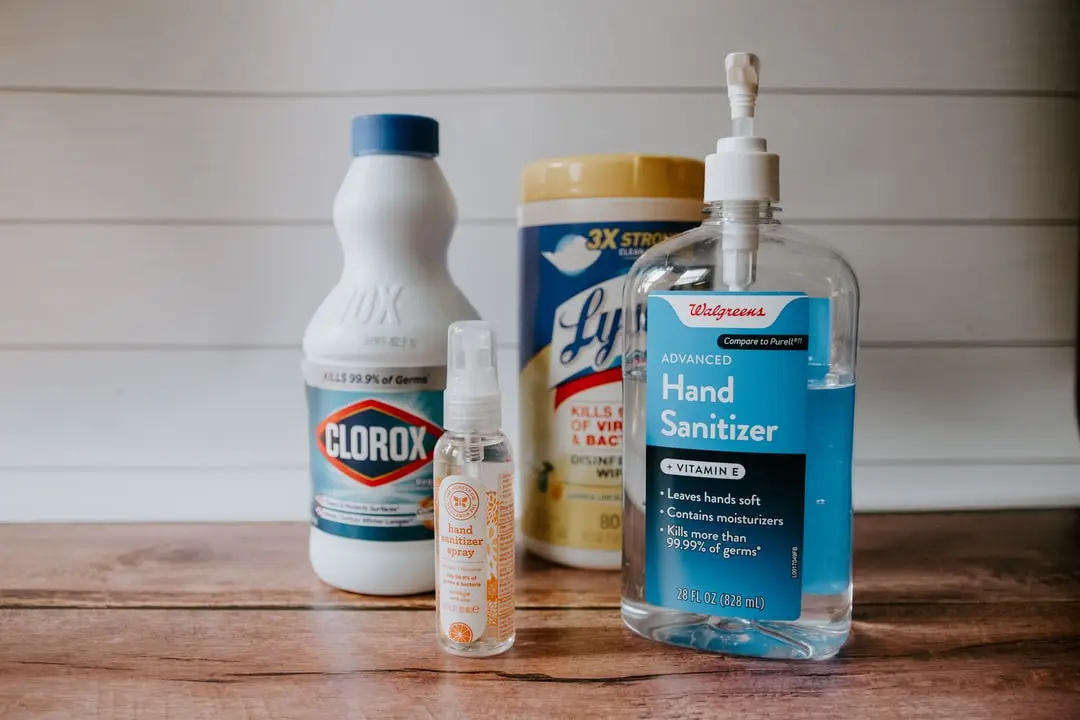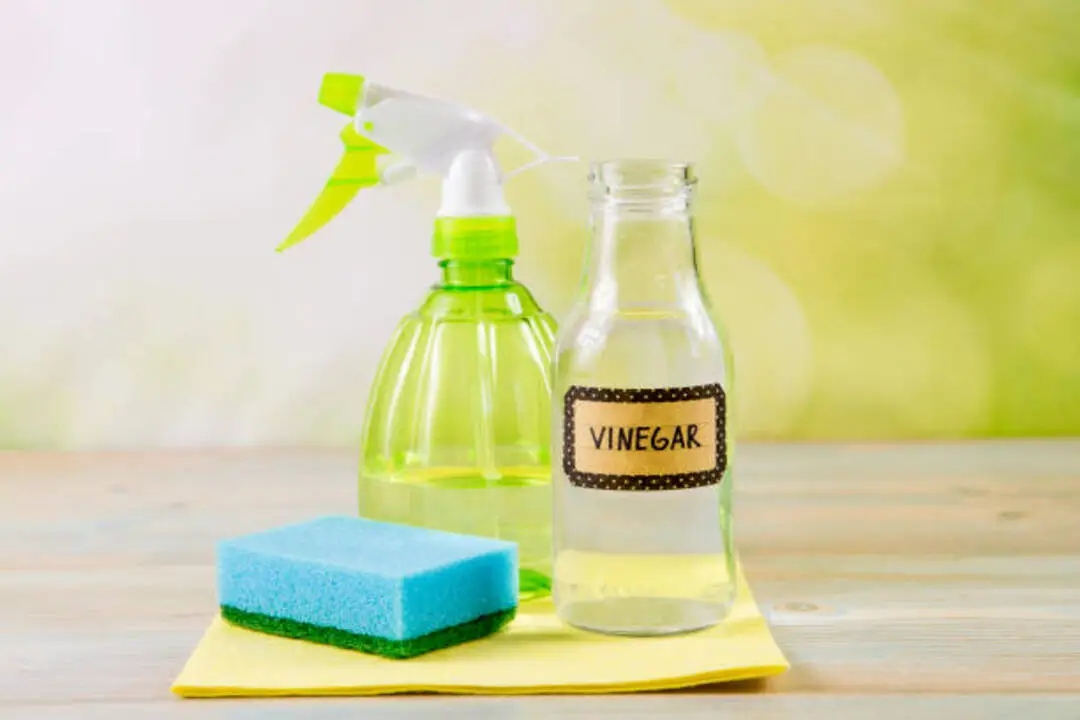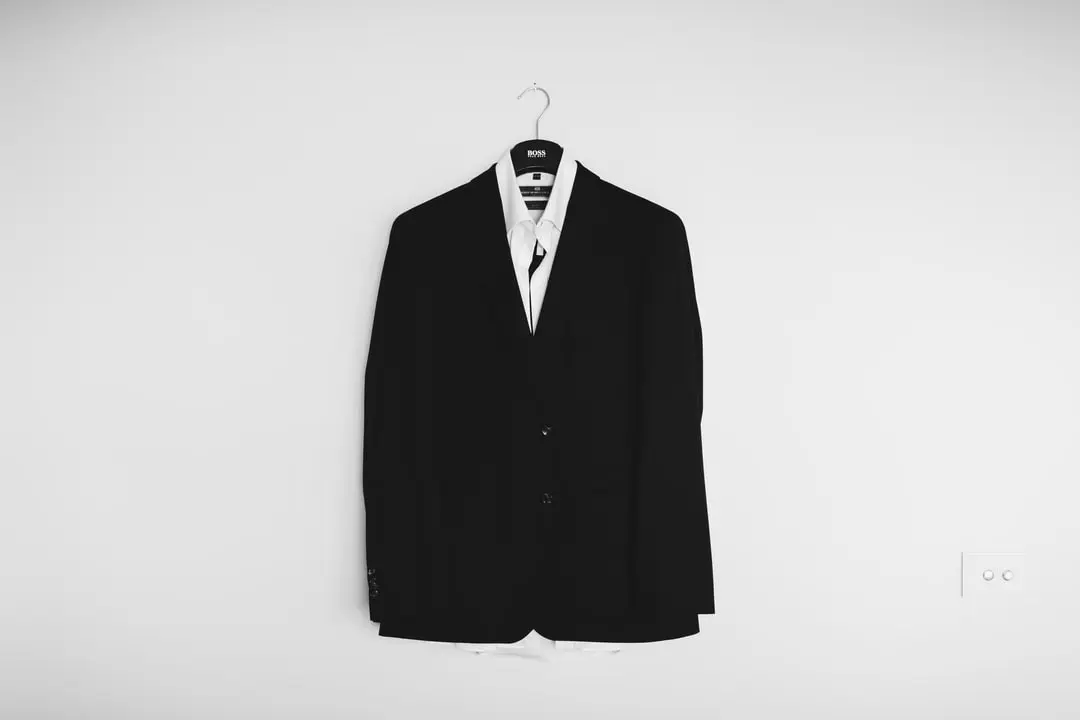Is fabric softener bad for clothes? This is a question that has been asked several times without a clear answer. Some people say that it leaves a residue on the clothes that can make them less absorbent, while others claim that it makes clothes softer and helps to prevent them from shrinking. So, what is the truth?
Even though fabric softeners and dryer sheets really keep your clothes softer and reduce static cling on your clothes, they actually do more harm than good to your clothes.
The chemicals in fabric softeners can coat your clothes, which reduces the breathability of your clothes. This can cause your clothes to become less absorbent and fade faster. Also, these chemicals in fabric softeners can cause health issues such as skin irritation, headaches, fatigue, and even cancer.
If you must use fabric softener, try using a natural version that doesn’t contain harsh chemicals. Or better still, skip the fabric softener altogether and stick with white vinegar or baking soda. Your clothes will thank you for it.
But is fabric softener really necessary in the laundry? When should you use fabric softeners on your clothes? And why are liquid fabric softener and dryer sheets bad for your clothes? Stay tuned to find out the answers to these questions and many more.
What Is Fabric Softener and How Does It Work?
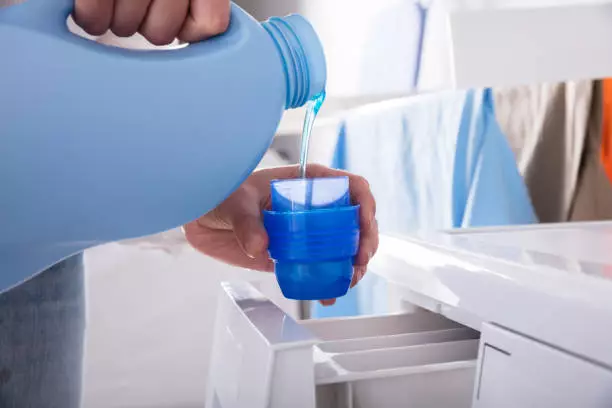
A fabric softener is a product that contains Diethyl ester dimethyl ammonium chloride, which binds very tightly to natural fibers, causing the fibers to be softer and more comfortable.
Most fabric softeners are made of synthetic chemicals, fragrances, soap, and essential oils. It is available as a liquid, sheet, or pod. While fabric softeners soften your clothes and make them static-free, they can also be harmful to your health and the environment.
Fabric softener is a common additive in laundry detergents and it is designed to make clothes more comfortable and feel softer. Fabric softeners work by coating the fabric fibers with a thin layer of chemicals that make them slippery.
This causes the fabric to move more easily across each other, which reduces the amount of friction and, as a result, the amount of wear and tear. There are a variety of ways to use fabric softener, but the most common way is to add it to your washing machine during the rinse cycle.
The problem with using fabric softener is that it can actually damage the garment over time. The chemicals can make the fibers brittle, reduce absorbency, and be less elastic, which can cause them to break or tear more easily. In addition, the coating can act like a magnet for dirt and lint, making it harder to clean your clothes.
Moreover, the chemicals in fabric softeners can be harmful to your skin and lungs, and they can also build up on your clothes over time, making the garments less effective at absorbing sweat and odors.
Is fabric softener necessary in the laundry?

No, fabric softener is not necessary in laundry. You can achieve the same results by adding baking soda or vinegar to the wash cycle. Although fabric softeners can help make your clothes feel softer and smell nicer, they’re not necessary for getting clothes clean.
One of the main reasons why fabric softeners are bad for clothes is because they reduce the absorbency of fabrics. This can be a problem, especially for items like towels, which are meant to soak up water. Fabric softeners can also make clothes more susceptible to stains and make them less durable.
Furthermore, fabric softeners can also build up over time in your washing machine, making it less efficient and sometimes even breaking it down. If you are looking for a way to make your laundry feel softer, consider adding a cup of white vinegar to the rinse cycle instead.
Despite these potential drawbacks, many people still believe that fabric softeners are an important part of laundry care. They help reduce static cling on clothes and help to soften fabrics, which can make them more comfortable to wear. It also gives clothes a fresh scent and can help to prevent wrinkles from forming.
There are a few things to consider when deciding whether or not to use fabric softener in your laundry routine.
First, it is important to note that fabric softeners should not be used on all types of clothing. In fact, using fabric softener on some fabrics can actually make them less absorbent. If you are primarily concerned with keeping your clothes looking and feeling their best, it might be better to skip the fabric softener altogether.
When Should You Use Fabric Softener on Clothes?

Fabric softeners are a popular laundry additive that is used to reduce wrinkles, get rid of static cling, and make garments softer. However, fabric softeners can also be bad for clothes if they are not used correctly. Fabric softeners can leave a residue on clothes that can cause them to wear out more quickly. Additionally, fabric softeners can also clog your washing machine by leaving a residue in it.
If you live in a hard water area, then using a fabric softener or dryer sheets can help soften your clothes and make them comfortable. This is because washing clothes with hard water makes your clothes feel scratchy after washing. In addition, if you are living in a dry climate zone, you can also use fabric softener to keep your clothes soft and cool.
However, if you don’t have hard water or live in a dry climate zone, then using fabric softener can actually make your clothes dirtier and less absorbent. So if you don’t have hard water or live in a dry climate, consider skipping the fabric softener in order to save yourself some extra work later on. Moreover, there are many ways of reducing the hardness of water in laundry without using fabric softeners.
One way to reduce the hardness of water is to use a water softener. A water softener uses a chemical called sodium hexametaphosphate to soften the water. It replaces the calcium and magnesium ions in the water with sodium ions. This makes the water less hard and helps it to rinse more cleanly from clothes.
Another way to reduce the hardness of water in laundry is to use laundry detergents that are specifically designed for this purpose.
There are so many detergents on the market that are designed for use in hard water, some of which are Calgon water softener, Wilko softening laundry power, PSH hard water machine wash, and many more. These detergents contain ingredients that help them work better in hard water.
Can Fabric Softeners Be Used on All Fabrics?
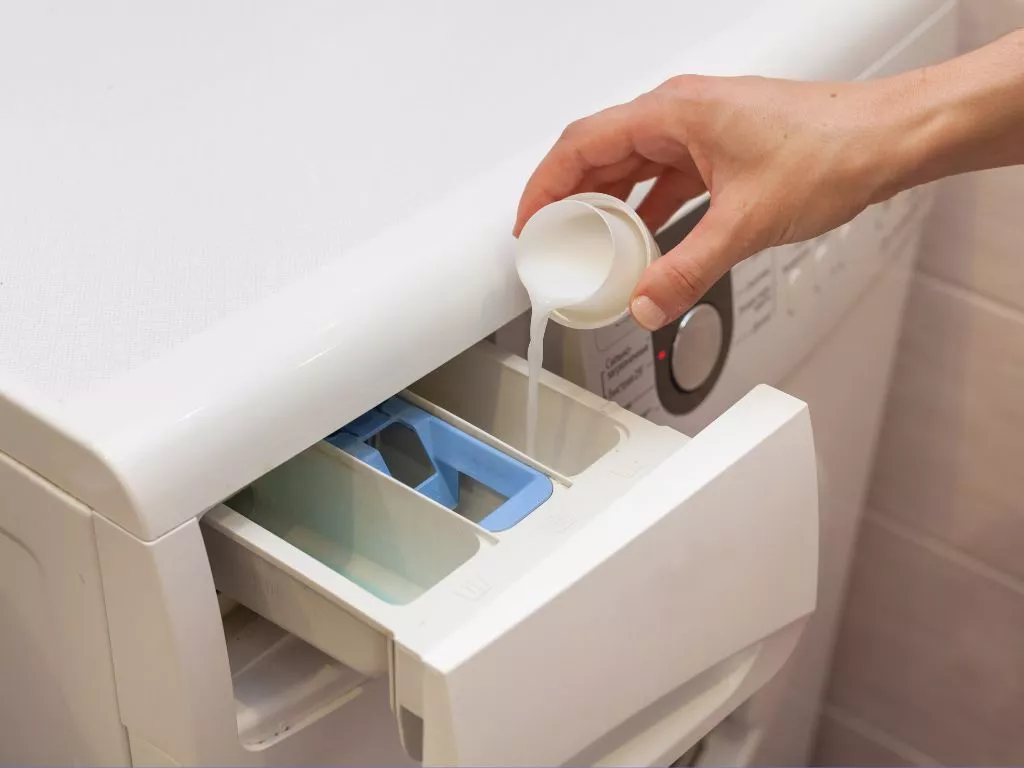
Fabric softeners are a popular way to make clothes feel soft, but some people wonder if they can be used on all fabrics. The answer is no; fabric softeners can be bad for clothes made of certain materials.
Fabric softener should be used on clothes that are made of natural fibers such as cotton and linen. Don’t use fabric softener on clothes that are made of synthetic fibers such as polyester, microfiber, and nylon.
The chemicals in fabric softeners can break down the synthetic fibers, causing them to lose their shape and color. If you’re not sure whether a particular fabric is safe to use with fabric softener, it’s best to check the care label of the clothing.
However, if you do choose to use fabric softener, it is important to follow the instructions on the bottle carefully to make sure you are using it right. Fabric softeners should also never be used in combination with bleach, as this can cause dangerous fumes.
Why are fabric softeners considered to be bad in the laundry?

Fabric softeners have been a popular laundry additive for decades. However, there is evidence that using fabric softener in your laundry may be doing more harm than good. Here are 12 good reasons why fabric softeners are bad in laundry.
- Fabric softeners can leave a coating on fabrics that makes them less absorbent. This can cause clothing to become less breathable and trap moisture, which can lead to bacteria growth and skin irritation.
- It can cause a lot of buildup in your washing machine.
- It can cause fire hazards in your dryer as it leaves a dangerous build-up in it.
- Although the fragrance in fabric softener makes clothes smell nice, it can be a problem for some people with health issues.
- It leaves residue on your fabric softener dispenser, which can cause blockage.
- It leaves a residue buildup in your washer, which makes your clothes smell sour after washing them. The residues left behind by fabric softeners accumulate and cause your clothes to start to smell bad over time.
- It is bad for people with sensitive skin or allergies.
- It is not environmentally friendly. This is because when fabric softener is exposed to bodies of water, it can kill the fish in the water. They are known to be toxic to marine life and can contaminate waterways when they are washed down the drain.
- It is bad for workout clothes, towels, baby’s clothes, leggings, and underwear. It makes these clothes greasier, slipperier, and less absorbent.
- It deposits a residue of fat on clothes, which makes them less absorbent.
- It blocks wicking. Wicking allows sweat to move from the inside to the clothes outside while taking your body heat with it.
- It coats your clothes with toxic chemicals that can settle on your skin and cause headaches, fatigue, and even cancer. Fabric softeners contain many chemicals that are harmful to both humans and the environment.
If you want to keep your garments looking and feeling their best, avoid using fabric softener and opt for a natural alternative like baking soda or vinegar.
What Happens If You Use Too Much Fabric Softener?

When it comes to fabric softeners, there is a fine line between using too much and not enough. Using too much fabric softener can have some pretty negative consequences for your clothes. Here are three things that can happen if you use too much fabric softener:
If you use too much fabric softener, it can cause your clothes to become stiff and less absorbent. This is because fabric softener coats the fibers of your clothes with a thin film, which can make them less able to take in moisture and air. Over time, this can lead to a build-up of static electricity.
Additionally, using too much fabric softener can also make your laundry smell more like chemicals than clothes. For these reasons, it’s important to use the recommended amount of fabric softener for each load of laundry.
Furthermore, using too much fabric softener can cause your clothes to look and feel faded and worn out. This is because the fabric softener coats your clothes in a thin film, which can make them less durable.
Finally, the excessive use of fabric softener can also make your clothes more susceptible to wrinkles and stretching. Over time, using too much fabric softener can actually strip the color from your clothes, leaving them looking dull and faded. For these reasons, it’s important to use the recommended amount of fabric softener for each load of laundry.
How Do You Remove Fabric Softener Stains From Clothes?

Fabric softener can be a lifesaver when it comes to getting rid of static cling on clothes, but it can also be a pain when it leaves stains on your clothes. Fabric softeners can leave behind oily residues on clothes, which can cause them to look faded and worn out. If you’ve got fabric softener stains on your clothes, don’t worry; there are ways to remove them.
One way to remove fabric softener stains is to use a white vinegar and water solution. Mix one part vinegar with three parts water, then soak the clothes in the mixture for about 30 minutes. Afterward, wash the clothes as usual.
Another way to remove fabric softener residue from garments is to use a baking soda solution. Add one cup of baking soda to one gallon of water and stir until it dissolves. Put the stained clothes into the solution and allow them to soak for 30 minutes before washing them normally.
Moreover, you can also remove the smell of fabric softener and stains from clothes by using dish soap. Dish soap is known for its ability to break down oils and grease, so it’s perfect for removing fabric softener stains. To use this, wet the stained area of the clothes, then rub a little dish soap into the stain. Allow it to sit on the clothes for about 10 to 20 minutes before washing it off.
Finally, if the stains are particularly difficult to remove, you will need to use a stain removal product that is specifically designed to remove them. Follow the instructions on the stain remover bottle to ensure that the stain is properly removed.
How Much Fabric Softener Should You Use To Avoid Damage?
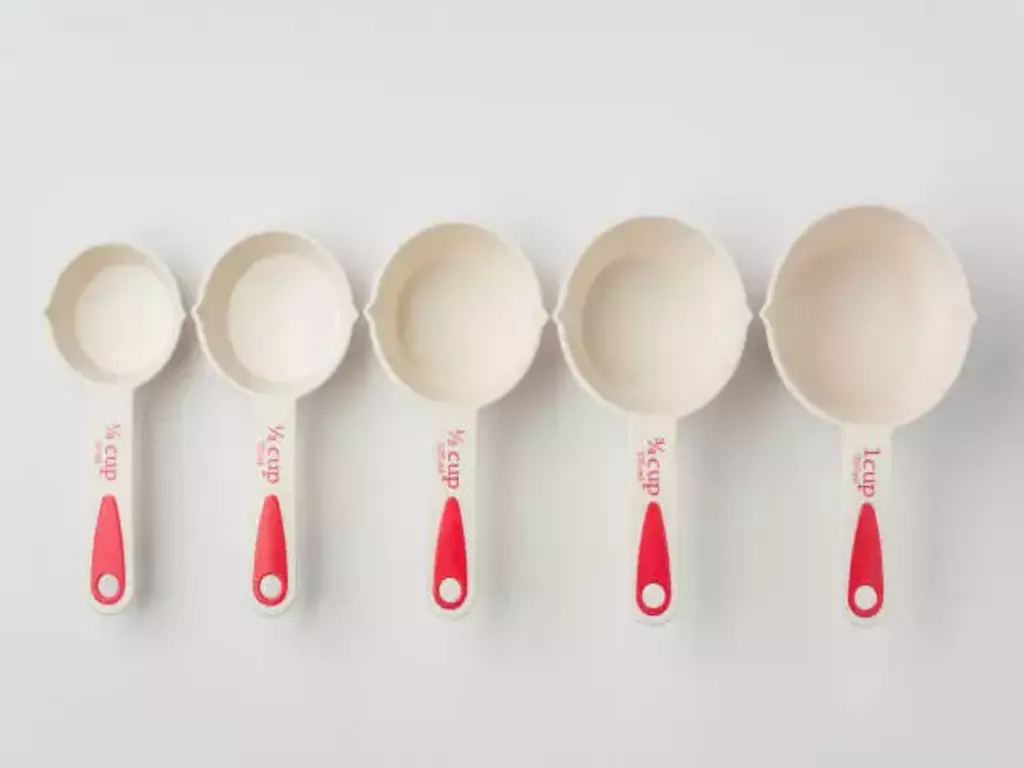
Most fabric softeners contain a laundry additive called quaternary ammonium compounds (QACs). These additives work to soften fabrics by weakening the fibers’ natural bond. QACs are also effective at combating bacteria, which is why they are found in many fabric softeners.
While it is true that QACs do a good job at keeping clothes clean and fresh-smelling, they can also have some negative consequences. However, if you really have to use fabric softener, how much should you use to avoid damaging your clothes?
Too much fabric softener can make clothes stiff and less breathable. It can also coat the fabric and make it less absorbent, leading to decreased drying time. Therefore, it is best to always use the right amount of fabric softener for maximum results.
How much fabric softener you should use depends on the type of fabric softener and the brand. Most brands recommend using 35ml of liquid softener (about half a cup) for a 4–5kg drum or using 55ml (about a full cup) for a 6–7kg drum.
For dryer sheets, most recommend just a single sheet for a small load of laundry and two sheets for a large load of laundry. You should also avoid overusing fabric softener, as this can also damage your clothes. However, it is important to check the care instructions of the brand you are using for the right amount to use.
To avoid damaging your clothes, use only the recommended amount of fabric softener. You may also want to avoid using fabric softener on items that are specifically designed to be breathable, such as athletic wear or lingerie. If you do have any items that have been damaged by fabric softener, you can try restoring them by laundering them with a small amount of baking soda or vinegar.
What are the best alternatives to fabric softener?

Fabric softener is a popular additive to laundry detergent that is meant to make clothes feel softer. However, there are some potential drawbacks to using fabric softener. There are several fabric softener alternatives that can provide similar results without any of the drawbacks mentioned above.
White vinegar
Vinegar is a great natural fabric softener, and it also helps to get rid of any built-up residue or odors in your laundry. To use vinegar as a fabric softener, add one cup to the rinse cycle for each load of laundry by adding the vinegar to the fabric softener dispenser. If you have hard water, you may need to add more vinegar. Vinegar can also be added to the wash cycle as a detergent booster.
Baking soda
Baking soda can be used as an alternative to liquid fabric softener or dryer sheets. It works by neutralizing the acid in your sweat and oils on your skin. This will help to keep your clothes from looking or feeling dirty faster.
In addition, baking soda can also help to remove odors from clothing. To use this, try adding a cup of baking soda to your wash cycle; this will soften your clothes and also help to remove any odors.
Wool dryer balls
Wool dryer balls are a natural way to soften clothes in the dryer. They work by absorbing moisture and then releasing it slowly, which keeps your clothes from getting too hot and prevents them from shrinking. Unlike fabric softener sheets, wool dryer balls are free of chemicals and won’t leave any residue on your clothes.
You can make your own wool dryer balls using wool, or you can buy them pre-made. If you choose to make your own, be sure to use 100% wool and not a blend. The best way to use dryer balls is to place them in with your clothes when you start the dryer and then remove them when the cycle is finished. Make sure to use three to six dryer balls depending on the size of the load.
Aluminum foil
Aluminum foil has been around for centuries and is still used today in various ways. One of these ways is as an alternative to fabric softener. When aluminum foil is placed in the dryer with clothes, it helps to soften them.
This is because the aluminum foil creates a barrier between the clothes and the heat, which prevents them from becoming too hot and stiff. In addition, the aluminum foil also helps to remove wrinkles from clothes.
Tennis balls
Tennis balls are a great way to keep clothes soft and static-free. When you place a few tennis balls in the dryer with your clothes, the tennis balls will help to absorb the moisture in the clothes. The tennis balls can help to fluff up the clothes and remove any wrinkles that may be present.
If there is a load of laundry that needs a little extra softening, put two or three tennis balls in the dryer with it. This is a cheaper and more natural way to get clothes to feel softer than using a traditional fabric softener.
Click here for more articles that can help you keep yourself and your surroundings clean always!
Final Thoughts
In conclusion, fabric softener can be bad for clothes. It can make them less absorbent, reduce their life span, and create a build-up of chemicals on the fabric.
However, it is important to note that this depends on the type of fabric softener and the type of fabric being washed. If used correctly, fabric softener can be a helpful tool in keeping clothes looking and feeling their best.
If you do choose to use fabric softener, just be sure to follow the instructions carefully and avoid overusing it, as this can also lead to negative effects. Thank you for your time!
